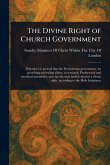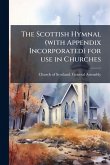Irenicum, a Weapon-salve for the Churches Wounds, written by Edward Stillingfleet and published in 1662, addresses the contentious issues surrounding church governance in 17th-century England. This significant theological work delves into the â~divine right of particular forms of church-government, ' offering a perspective aimed at healing the divisions within the Christian community. Stillingfleet's exploration extends to the power of excommunication within a Christian church, providing a comprehensive examination of ecclesiastical authority. This historical text offers valuable insights into the religious and political landscape of the era, reflecting the debates and tensions that shaped the Church of England. With a bookplate from John Myddelton, this volume connects readers to a rich history of ownership and scholarship, making it an important resource for understanding the complexities of religious thought in early modern England. It remains relevant to scholars and those interested in historical theology and the development of church doctrine. This work has been selected by scholars as being culturally important, and is part of the knowledge base of civilization as we know it. This work was reproduced from the original artifact, and remains as true to the original work as possible. Therefore, you will see the original copyright references, library stamps (as most of these works have been housed in our most important libraries around the world), and other notations in the work. This work is in the public domain in the United States of America, and possibly other nations. Within the United States, you may freely copy and distribute this work, as no entity (individual or corporate) has a copyright on the body of the work. As a reproduction of a historical artifact, this work may contain missing or blurred pages, poor pictures, errant marks, etc. Scholars believe, and we concur, that this work is important enough to be preserved, reproduced, and made generally available to the public. We appreciate your support of the preservation process, and thank you for being an important part of keeping this knowledge alive and relevant.
Bitte wählen Sie Ihr Anliegen aus.
Rechnungen
Retourenschein anfordern
Bestellstatus
Storno


![Digest of the Minutes of the Synod of the Presbyterian Church of Canada [microform]: With a Historical Introduction and an Appendix of Forms and Proce Digest of the Minutes of the Synod of the Presbyterian Church of Canada [microform]: With a Historical Introduction and an Appendix of Forms and Proce](https://bilder.buecher.de/produkte/66/66185/66185461m.jpg)





